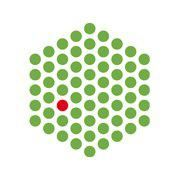 Mathematics of life: Modelling molecular mechanisms (Virtual)
Mathematics of life: Modelling molecular mechanisms (Virtual)
Date: 28 September - 2 October 2020
Computer models are increasingly used to understand essential processes of biology. Researchers in academic institutions as well as the pharmaceutical industry use mathematical models to generate hypotheses on how complex biomolecular systems work. Modelling of biochemical pathways deregulated in disease conditions can offer mechanistic insights into the pathology, help to elucidate mechanisms behind drug action and predict the dose required for treatment thus facilitating fundamental research and drug discovery. This course will provide participants with an introduction to modelling resources, tools and approaches used in systems biology as well as touch on network analysis.
This course will be a virtual event delivered via a mixture of live-streamed sessions, pre-recorded lectures and tutorials with live support. We will be using Zoom to run the live stream sessions (all fully password protected) with support provided by Slack. In order to make most out of the course you should make sure to have a stable internet connection throughout the week.
Selected participants will be sent materials prior to the course. These might include pre-recorded talks and required reading that will be essential to fully understand the course.
Contact: Rebecca Nicholl - [email protected]
Keywords: BioModels database, IntAct Molecular Interaction Database, Reactome Pathways Analysis, Systems (systems), Logic modelling, Spatial modelling, Pathway enrichment analysis
Organizer: European Bioinformatics Institute (EBI)
Target audience: This course is aimed at experimental biologists, bioinformaticians and mathematicians who have just started in systems biology, are familiar with the basic terminology in this field and who are now keen on gaining a better knowledge of systems biology modelling approaches to understand biological and biomedical problems. A working knowledge of the Linux operating system and ability to use the command line or experience of using a programming language (e.g Python) would be a benefit but is not mandatory. An undergraduate knowledge of molecular and cellular biology or some background in mathematics is highly beneficial.
Capacity: 30
Event types:
- Workshops and courses
Scientific topics: Mathematics, Mathematical model, Systems biology, Network analysis, Kinetic model
Activity log

 EMBL-EBI
EMBL-EBI
